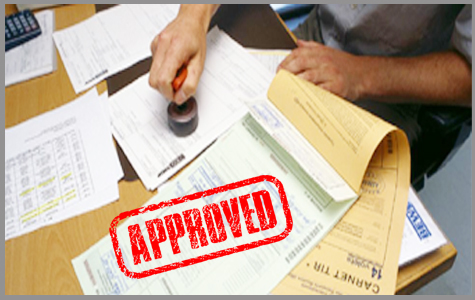Import Medicine to the UK
A Comprehensive Guide
he UK is a major importer of medicines, with a market worth billions of pounds each year. The country is home to a number of large pharmaceutical companies, such as GSK, AstraZeneca, and Pfizer. These companies import medicines from all over the world, including India, China, and the United States.
In addition to large pharmaceutical companies, the UK also has a growing number of small businesses that import and distribute medicines. These businesses import medicines from a variety of sources, including online retailers, wholesalers, and distributors.
The import of medicines into the UK is a complex process. There are a number of regulations that businesses must comply with, as well as duties and taxes that must be paid.
Importing Pharmaceuticals into the UK: An In-Depth Analysis
Understanding UK Pharmaceutical Import Regulations
Legal Framework and Compliance
The United Kingdom's pharmaceutical industry operates under a stringent legal framework, ensuring that all imported products meet high safety and efficacy standards. Key in navigating this landscape is understanding the role of the Medicines and Healthcare products Regulatory Agency (MHRA), which oversees the regulation of medicines, medical devices, and blood components for transfusion in the UK.
Navigating MHRA Guidelines
The MHRA sets guidelines for the import of pharmaceuticals, focusing on patient safety and product quality. Familiarity with these guidelines is crucial for anyone involved in the import process. They cover a range of aspects from clinical trials to post-market surveillance.
Understanding EU Influence on UK Policies
Despite Brexit, the EU's influence on UK pharmaceutical policies remains significant. The UK continues to align with many European standards, although it's crucial to stay updated on any divergence in regulations post-Brexit.
Specifics of Import Licensing
Criteria for Obtaining Import Licenses
To import pharmaceuticals into the UK, a specific license is required. The criteria for obtaining this license are rigorous, requiring proof of adherence to Good Manufacturing Practice (GMP) and other safety standards.
Renewal and Maintenance of Import Licenses
Holding an import license is not a one-time event. Regular renewal and adherence to evolving standards are necessary to maintain this crucial credential.
The Process of Pharmaceutical Importation in the UK
Selecting Reliable Suppliers
Assessing Supplier Credibility
Selecting a credible supplier is a critical step in the import process. It involves evaluating the supplier's track record, compliance history, and the quality of their products.
Global Sourcing Strategies
In an increasingly globalized world, understanding and leveraging global sourcing strategies is key. This involves evaluating potential suppliers from different countries and navigating the complexities of international trade agreements.
Logistics of Pharmaceutical Importation
Transportation and Storage Requirements
Pharmaceuticals often require specialized transportation and storage conditions. Understanding and adhering to these requirements is essential for maintaining product integrity.
Handling Customs and Duties
Navigating customs and understanding the associated duties and taxes are integral parts of the import process. It requires an understanding of both UK customs regulations and any relevant international trade laws.
Quality Assurance and Safety Standards
Meeting UK Pharmaceutical Standards
Compliance with Good Manufacturing Practices (GMP)
Compliance with GMP is non-negotiable for any entity looking to import pharmaceuticals into the UK. These practices ensure that products are consistently produced and controlled to quality standards.
Ensuring Product Quality and Safety
Ensuring product quality and safety goes beyond compliance. It involves a proactive approach to quality assurance throughout the supply chain.
Regulatory Inspections and Audits
Preparing for MHRA Inspections
Preparation for MHRA inspections is a critical component of the import process. This involves ensuring that all aspects of the importation and distribution process meet regulatory standards.
Dealing with Compliance Issues
In the event of compliance issues, understanding the steps to rectify these issues is essential. This includes working closely with regulatory bodies to ensure all concerns are addressed promptly and effectively.
Brexit and Its Impact on Pharmaceutical Imports
Changes in Import Protocols Post-Brexit
Adapting to New Regulatory Environments
The post-Brexit landscape has brought changes to the regulatory environment governing pharmaceutical imports. Staying informed and adaptable is key to navigating these changes successfully.
Impact on Supply Chain and Distribution
Brexit has implications for supply chain and distribution networks. Understanding and adapting to these changes is crucial for maintaining a seamless import process.
Technological Advancements in Pharmaceutical Imports
Leveraging Technology for Efficient Importation
Digital Solutions for Compliance and Tracking
Embracing digital solutions can streamline the import process, from compliance tracking to real-time monitoring of shipments.
The Role of AI in Pharmaceutical Logistics
Artificial intelligence (AI) is playing an increasingly significant role in pharmaceutical logistics, offering innovative solutions for predictive analytics, inventory management, and more.
Financial Considerations and Cost Management
Budgeting for Pharmaceutical Imports
Understanding Import Tariffs and Taxes
A clear understanding of import tariffs and taxes is essential for effective budgeting in the pharmaceutical import process.
Cost-Effective Import Strategies
Developing cost-effective strategies is key to maintaining profitability while ensuring compliance and product quality.
Ethical and Environmental Considerations
Sustainable Practices in Pharmaceutical Import
Ethical Sourcing of Pharmaceuticals
Ethical sourcing is becoming increasingly important in the pharmaceutical industry. It involves considerations like labor practices and environmental impact.
Reducing Environmental Impact of Imports
Reducing the environmental impact of pharmaceutical imports is a growing concern. This involves considering factors like transportation methods and packaging materials.
Navigating Legal and Ethical Challenges
Handling Intellectual Property Issues
Dealing with Patent Laws and Regulations
Understanding and navigating patent laws and regulations is a crucial aspect of importing pharmaceuticals, particularly when dealing with branded medicines.
Ethical Concerns in Pharmaceutical Importation
Addressing ethical concerns, such as access to medicines and fair pricing, is an integral part of the import process.
The Future of Pharmaceutical Imports in the UK
Predicting Industry Trends
The Impact of Global Health Crises on Imports
The COVID-19 pandemic has highlighted the importance of the pharmaceutical supply chain. Understanding how global health crises impact imports is crucial for future planning.
Emerging Markets and Opportunities
Identifying and capitalizing on emerging markets and opportunities can help importers stay ahead in a dynamic industry.
Case Studies: Successful Pharmaceutical Import Ventures
Analysing Successful Import Strategies
Learning from Industry Leaders
Examining the strategies of successful import ventures provides valuable insights into best practices and innovative approaches.
Overcoming Challenges in the Import Process
Understanding how industry leaders have overcome specific challenges can provide practical guidance for new entrants into the market.
FAQs about Importing Pharmaceuticals into the UK
- What are the key regulations governing pharmaceutical imports in the UK?
- How has Brexit impacted pharmaceutical import processes?
- What are the requirements for a pharmaceutical import license in the UK?
- How can I ensure compliance with UK pharmaceutical standards?
- What are the challenges in sourcing pharmaceuticals globally?
- How can technology improve the efficiency of pharmaceutical imports?
Conclusion: Ensuring Success in Pharmaceutical Imports
Importing pharmaceuticals into the UK is a challenging yet rewarding endeavour. By understanding and adhering to the regulatory framework, ensuring quality and safety standards, and staying informed about industry changes and advancements, businesses can navigate this complex landscape successfully.
DOCUMENT REQUIREMENTS
- Certificate of Origin
- Bill of Lading
- Packing List
- Commercial Invoice
- Customs Clearance

